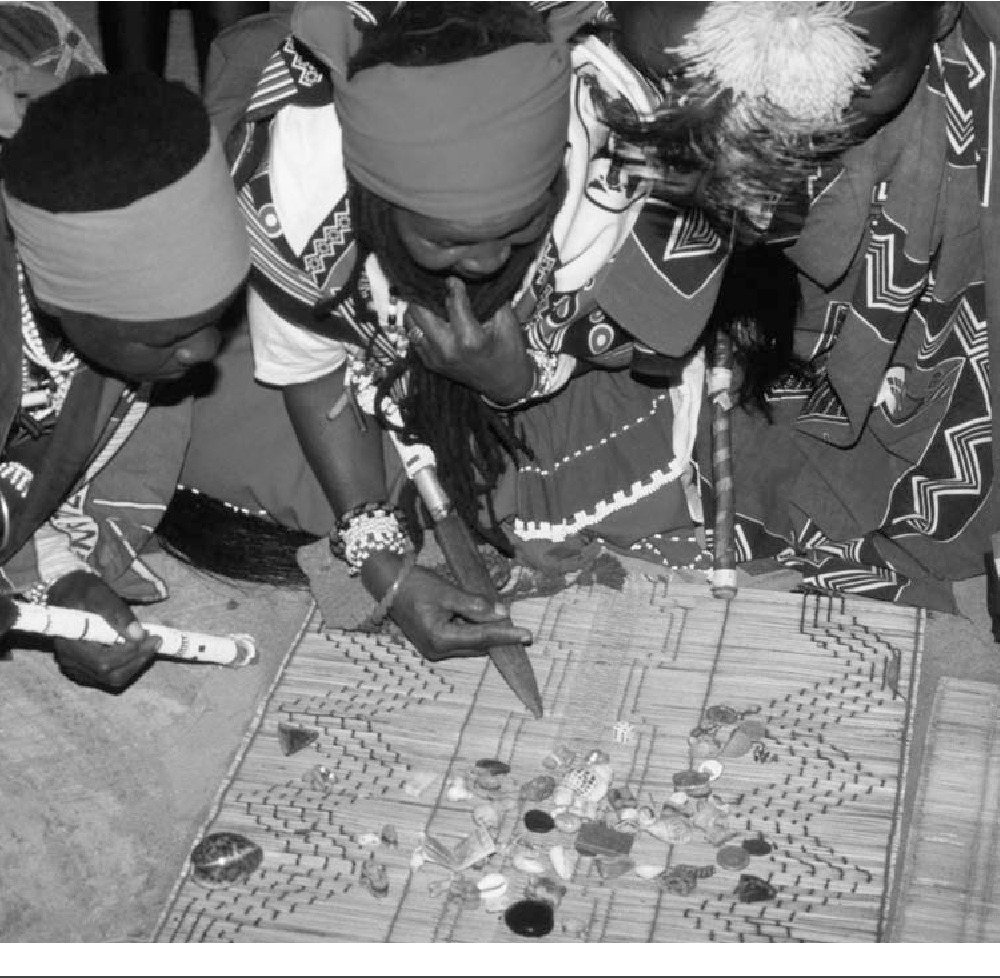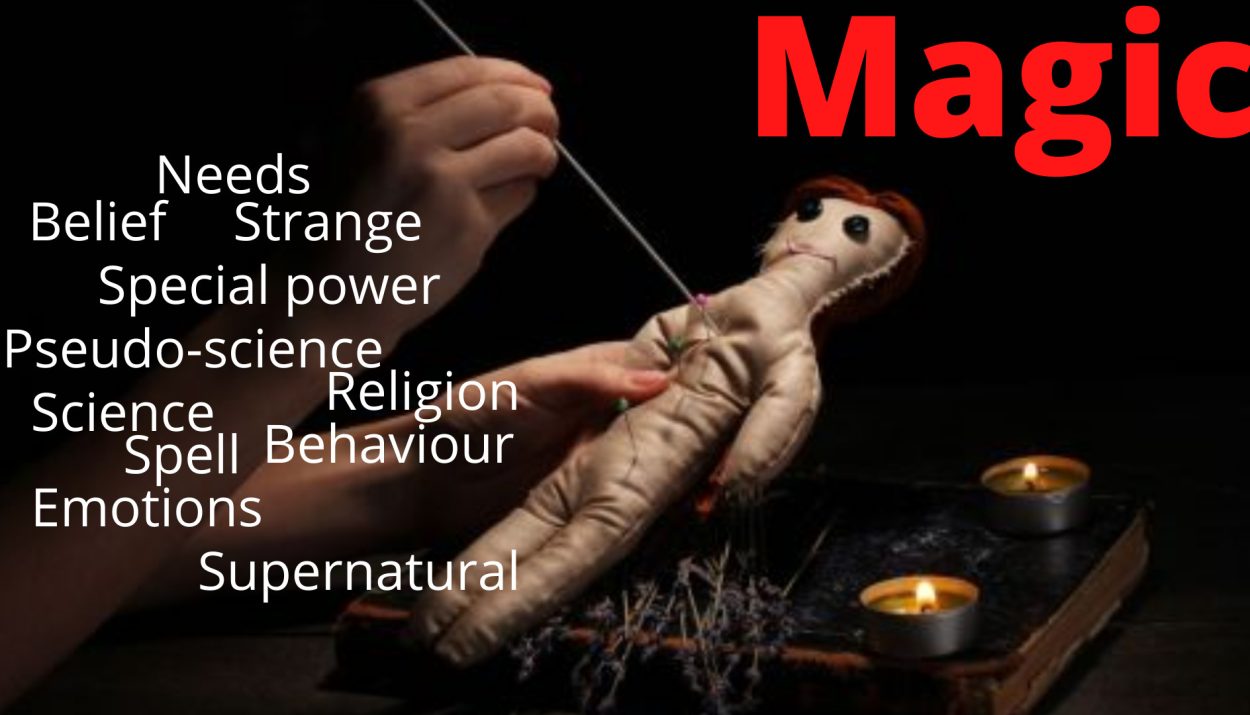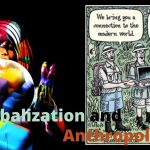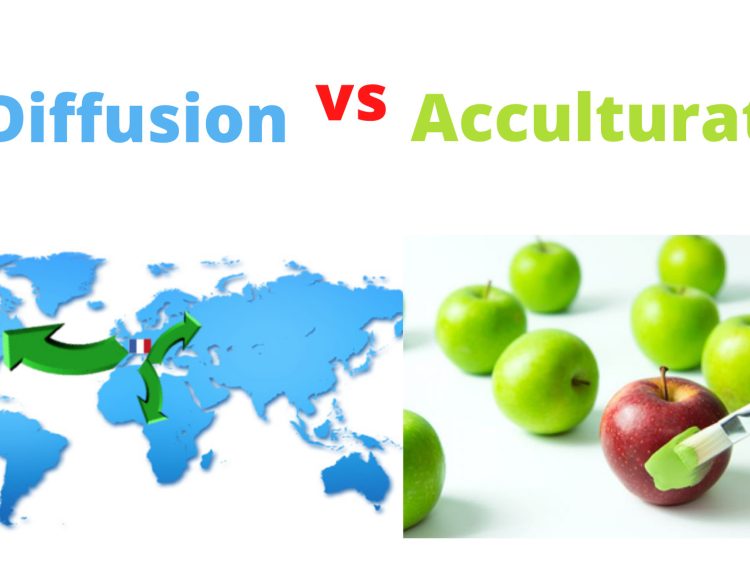The Anthropology of Magic explains the concept of magic, how magic controls the life of people, how it became an important aspect of some cultures. Usually, by magical actions, we mean a person’s abilities that cause strange events to happen suddenly.
According to the Merriam-Webster dictionary– “Magic is defined as a power that allows people (such as witches and wizards) to do impossible things by saying special words or performing special actions”.
According to the Cambridge dictionary– “Magic is the use of special power to make things happen that would usually be impossible”.

Frazer called Magic as Pseudo-science. He considers magic as the illegal sister of science. According to him, magic is the collection of those beliefs and behaviour of man which can not be criticized or re-examined.
According to S.C. Dube, magic is a kind of special power through which supernatural powers are controlled for the good or bad work as desired.
Malinowski regarded magic as directly and essentially concerned with the psychological needs of the individual.
Elements of magic
According to S.C. Dube, there are 3 types-
- Chanting some words in the form of a mantra.
- Some specific actions with chanting of mantra.
- The specific position of the person performing the spell.
According to Malinowski, there are 4 elements of magic which are as follows-
- Spell
- Physical substance
- Rules and regulations
- Expression of emotions
Types of Magic
Frazer talked about two types of laws-
Law of similarity– like produces like.
Law of contact– That is, the thing which comes in contact with another thing, it always keeps in contact with each other and reacts accordingly.
Based on these two laws, Frazer gave two types of magic-
Imitative magic
Based on Law of similarity. When one type of action is performed, the result is also of the same type, i.e. the same cause produces the same action.
For example- Beliefs among the tribes.
The tribe of Chota Nagpur drop the stone from the mountain, when it falls, it rains due to the rumble of its sound.
There is a practice of human sacrifice among the Khond tribe and it rains due to the fall of the tears.
Contagious magic
Based on Law of contact. It is believed that if something comes in contact with someone, then its contact is always with that person and that thing always affects him.
For example
Among the Kamar tribe, If there is an affair between a girl and a boy, then the boy cuts the girl’s hair or nails so that she is always under his hypnosis.

According to Malinowski– two types of magic :
- White Magic– for benefit
- Black Magic– for disadvantage
According to S.C. Dube- three types of magic:
- Authorative magic– related to benefits
- Protective magic– protects from black magic
- Disastrous magic– to harm
Similarities between Magic and Religion
1. Both believe in supernatural powers.
2. The working style of both is traditional.
3. If the goal is not achieved in both the activities, then it is assumed that there is some deficiency in the way of following them.
4. Both are concerned with the emotional expression of man.
5. The person doing both has to follow the taboo.
Differences between magic and religion
- Magic is an individual act whereas religion is a social act.
- Under religion we have to bow down to the supernatural power, while under magic we control the powers.
- The basic purpose of religion is benevolent whereas magic has both benevolent and un-welfare.
- According to Frazer, magic originated before religion.
- People are generally afraid of the person who performs magic while people have respect and reverence for the person who performs religious rituals.
Similarities between Magic and science
- There is a causal relationship between the two, that is, if any work has been done, there must be a reason behind it.
- In both it is believed that every event is due to some natural laws and under those laws there are systems and regularities.
- In both it is assumed that there is a reaction of action.
- Both are related to human needs.
- There are specific methods of doing work in both.
Differences between Magic and science
- Science believes in nature.
- Magic believes in supernatural powers.
- There is a possibility of examination and re-examination in science but not in magic.
- The way magic works is traditional while science is always changing.
Read more:
- Lamarck’s Theory of Evolution
- Bipedalism and Structural Changes
- Natufian Culture
- Cache of ancient coins dating back 100,000 years unearthed in Japan
- James George Frazer
Also read:
An introduction about the principle of heat treatment of steel








14 Comments
Azucena
2 years agoAsking questions are really nice thing if you are
not understanding anything fully, but this article provides fastidious understanding yet.
K VINEETA
2 years agoThank you. I am glad you like it.
Darrin
2 years agoI am really thankful to the holder of this web site who has shared this enormous paragraph at at this place.
K VINEETA
2 years agoI am glad you liked it.
Linnea
2 years agoPretty part of content. I simply stumbled upon your web site and in accession capital
to say that I acquire actually loved account your weblog posts.
Any way I will be subscribing for your augment and even I success you get admission to persistently rapidly.
K VINEETA
2 years agoThank you for your support.
Dominga
2 years agoMy partner and I stumbled over here different page and thought I should check things
out. I like what I see so i am just following you.
Look forward to exploring your web page again.
K VINEETA
2 years agoI am glad you liked my post. Thank you
Rosetta
2 years agoWonderful work! That is the type of info that are supposed to be shared around the internet.
Disgrace on Google for no longer positioning this post higher!
Come on over and seek advice from my web site .
Thanks =)
K VINEETA
2 years agoThank you for your appreciation.
Erick
2 years agoHello, I do think your website could possibly be having browser compatibility
problems. Whenever I look at your blog in Safari, it looks fine but when opening in IE, it has
some overlapping issues. I just wanted to provide you with a quick
heads up! Besides that, great blog!
K VINEETA
2 years agoI am happy to see such a comment. Thank you
Nichole
2 years agoIt’s going to be end of mine day, except before finish I am reading this great piece of writing to improve my know-how.
today's bible verse
2 years agoA big thank you for your blog.Really thank you! Cool.